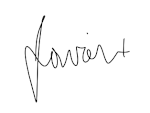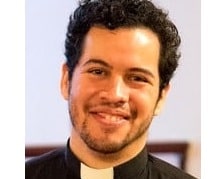The bell calls in the town
Where forebears cleared the shaded land
And brought high daylight down
To shine on field and trodden road.
I hear, but understand
Contrarily, and walk into the woods.
I leave labor and load,
Take up a different story.
I keep an inventory
Of wonders and of uncommercial goods…
I leave work’s daily rule
And come here to this restful place
Where music stirs the pool
And from high stations of the air
Fall notes of wordless grace,
Strewn remnants of the primal Sabbath’s hymn.
And I remember here
A tale of evil twined
With good, serpent and vine
And innocence of evil’s stratagem.
I let that go a while,
For it is hopeless to correct
By generations’ toil,
And I let go my hopes and plans
That no toil can perfect.
There is no vision here but what is seen:
White bloom nothing explains.
But a mute blessedness
Exceeding all distress,
The fresh light stained a hundred shades of green…
Excerpt from “Sabbaths – 1979, IV” by Wendell Berry
Labor Day came and went without much fanfare this past weekend. We find ourselves in a most unusual season, a most unusual year.
The holiday itself is a remembrance of a grim episode in American history: the decrepit working conditions brought about by the Industrial Revolution in the late 1800s; the hard-earned concessions and protections that the labor movement won for the average worker. Workers organized to put an end to 12-hour workdays and seven-day work weeks; they organized to establish child labor laws. They hoped and fought for the simple recognition that rest is a necessary part of human life.
In the gospels, there is a story about Jesus and the religious leaders of his time, arguing about whether his disciples are allowed to pluck grain on the sabbath. Instead of getting caught up in the legality of the matter, Jesus reframes the whole conversation: “The sabbath was made for humankind, and not humankind for the sabbath” (Mk 2:27).
Notice how he doesn’t reject the original premise: he, like the religious leaders of his time, supports sabbath observance! What he does, however, is shift the conversation toward what is needful: what is the purpose of observing the sabbath in the first place? Is it simply to follow the letter of the Law? Or is taking time to rest the kind of thing we need to do simply so that we can get back to work, as we are tempted to think now?
Neither is quite it. Sabbath is a gift, something that is for us: neither a requirement to be fulfilled simply because we must, nor an instrument to make us more productive the rest of the week. Sabbath is a reminder that rest is good in and of itself—not a tool for increasing productivity, but a sacred space: “a sanctuary in time,” in Abraham Joshua Heschel’s famous words. Sabbath, in other words, is meant to be enjoyed.
In our fragile, divided, hurting world—in this most unusual season of this most unusual year—it can be difficult to remember that. Let us, therefore, make good use of sabbath time, taking “inventory of wonders and uncommercial goods.”
— Fr. Javier


